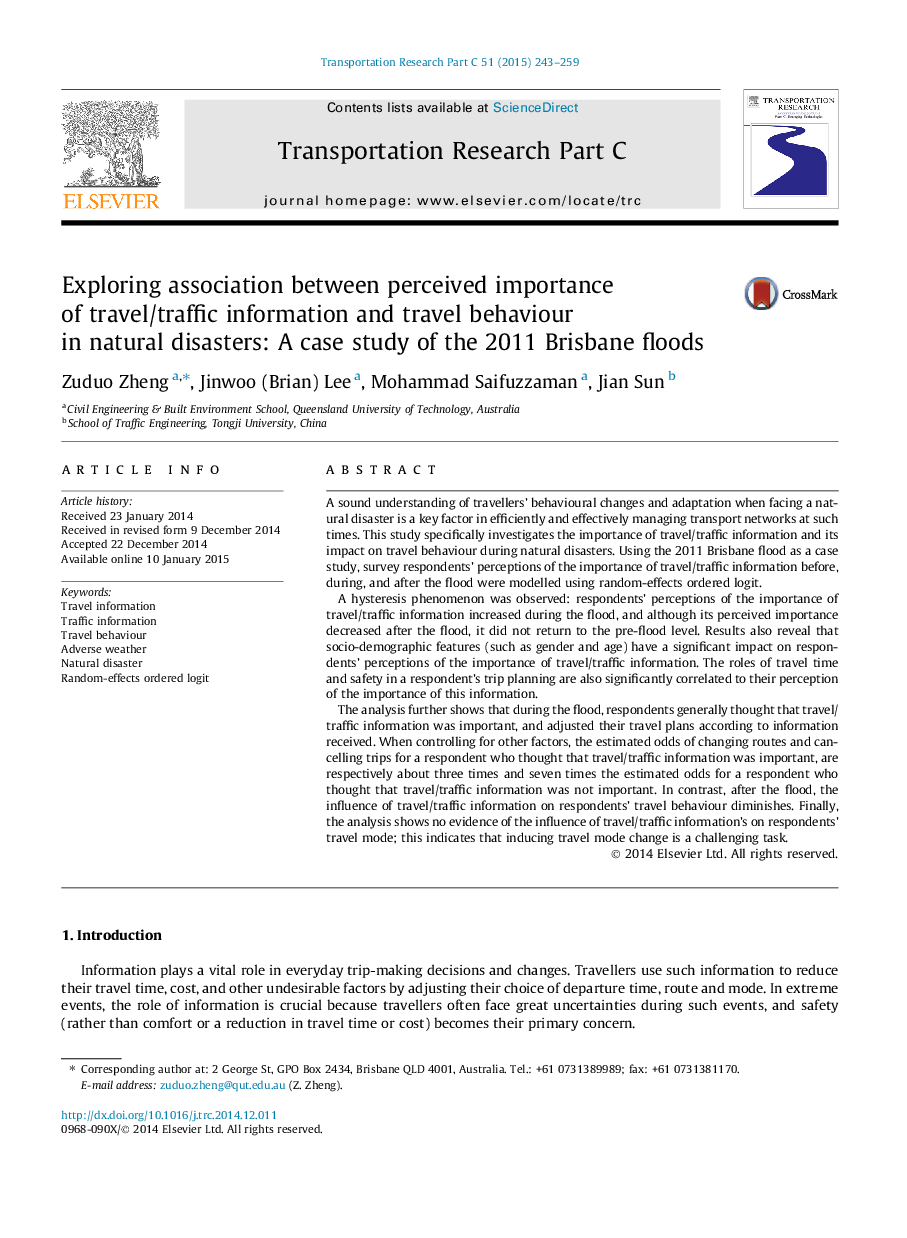| کد مقاله | کد نشریه | سال انتشار | مقاله انگلیسی | نسخه تمام متن |
|---|---|---|---|---|
| 525001 | 868878 | 2015 | 17 صفحه PDF | دانلود رایگان |
• Using the 2011 Brisbane flood as a case study.
• Respondents’ perceptions of the importance of travel/traffic information were modelled.
• The hysteresis phenomenon in respondents’ perceived information importance.
• Socio-demographic features have a significant impact on such perceptions.
• No evidence of the influence of travel/traffic information on respondents’ travel mode.
A sound understanding of travellers’ behavioural changes and adaptation when facing a natural disaster is a key factor in efficiently and effectively managing transport networks at such times. This study specifically investigates the importance of travel/traffic information and its impact on travel behaviour during natural disasters. Using the 2011 Brisbane flood as a case study, survey respondents’ perceptions of the importance of travel/traffic information before, during, and after the flood were modelled using random-effects ordered logit.A hysteresis phenomenon was observed: respondents’ perceptions of the importance of travel/traffic information increased during the flood, and although its perceived importance decreased after the flood, it did not return to the pre-flood level. Results also reveal that socio-demographic features (such as gender and age) have a significant impact on respondents’ perceptions of the importance of travel/traffic information. The roles of travel time and safety in a respondent’s trip planning are also significantly correlated to their perception of the importance of this information.The analysis further shows that during the flood, respondents generally thought that travel/traffic information was important, and adjusted their travel plans according to information received. When controlling for other factors, the estimated odds of changing routes and cancelling trips for a respondent who thought that travel/traffic information was important, are respectively about three times and seven times the estimated odds for a respondent who thought that travel/traffic information was not important. In contrast, after the flood, the influence of travel/traffic information on respondents’ travel behaviour diminishes. Finally, the analysis shows no evidence of the influence of travel/traffic information’s on respondents’ travel mode; this indicates that inducing travel mode change is a challenging task.
Journal: Transportation Research Part C: Emerging Technologies - Volume 51, February 2015, Pages 243–259
